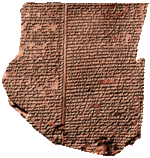Swallowing the sun
 Friday, March 15, 2013 at 9:01PM
Friday, March 15, 2013 at 9:01PM I have just watched a most beautiful programme about Rostropovich, the famous cellist, and it called to mind the following extract from 'The Gospel of Falling Down' by Mark Townsend, priest, writer and magician.
"Once there was a child who lived in the land of the yellow sunset. All day long that child waited for the sunset and every day it came. The child bathed in its yellow light, danced and sang music and needed no other, for his parents were dead and his sisters had gone to the city to find work. The child fed on the wild locusts and honey of the land. One day the child's sunset did not come for the sun went down and did not return.
The child waited and waited, for always the sun had returned each beautiful morning to greet the child, and then he watched the chariots pull it across the sky to the yellow sunset, for it was the dying of the sun the child loved. But sunrise was no more.
For years the child waited in the darkness. He groped his way through the blackness. He came to a city and found work scrubbing the pavements outside a businessman's house. But he kept in his heart the memory of the dying sun and his hope it would be reborn to die once again.
One day the child met an old man. The old man was carrying the sun in his mouth. But the boy could not see the man was doing this. He just saw something in the old man's eyes. And when he played music something awoke in the boy's heart. Slowly the boy began to learn the music day by day; it was difficult because of the hardhship of the boy's life, but he learnt. He had nothing else to distract him. And people began to hear him play.
As time went on the boy learnt more and more and grew into a man. He thought of the music when he was scrubbing the floors and at night he played to the people on the street who began to love him. Then the rich people began travelling to see him and they were amazed too.
One day the boy went to the old man, who was gone. He had left him a note, which was a picture of the yellow sunset. The boy put the picture on his wall and remembered. He played the music until the world began to fall in love with him.
Then one day the sun rose again. The boy's heart was filled with joy. It was the sunrise he loved now. It was the rising of the first morning once again. The people of the city didn't know that it had been the boy who had raised up the sun by his music; but the boy didn't mind for he knew. He knew he had lit up the world once again. And the old man spoke to him. He told the boy that once day he would have to swallow the sun again and plunge the city into darkness, so all would be desolate. Why?, the boy asked. The old man told him this:
Your ways are not my ways. I am the voice of the stars and of distant galaxies. Nothing can last forever. So I need some people to carry the light in them so that they can pass it on to others. The earth must see that until the sun is appreciated chosen ones will carry it in their mouths to pass on through the times of most darkness.
And it is the chosen few who must swallow the sun and plunge everyone else into darkness until they find another child to light once again. One day the world will neither live nor die nor swallow the sun. Until that day only music can speak for me.
You are blessed far, far beyond anything you understand. You are the child and the old man simultaneously and over and over again throughout time. Go back into my world again without fear and accept the vast riches I will give you without guilt or hesitation. Pass them on and swallow the sun. Again and again and again."


